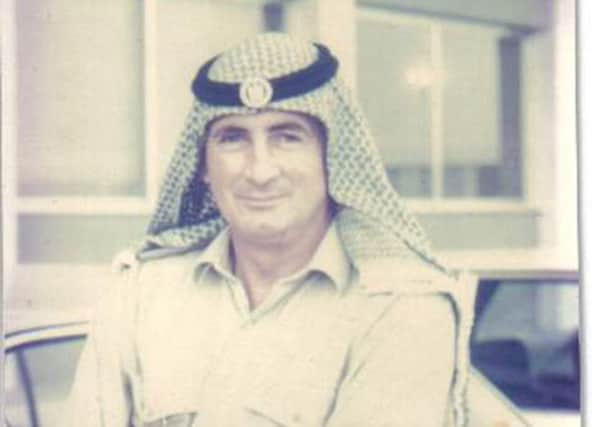Obituary: Rodney Harms, soldier


Scottish education nurtured the talents of Rodney Harms, who won the Military Cross in Korea and rose to be a staff colonel in the British army and hold senior Nato and foreign appointments.
The former pupil of Robert Gordon’s College, Aberdeen, earned his MC for an audacious daylight raid that destroyed a strongpoint of tunnels and trenches in central Korea in January 1953.
Advertisement
Hide AdAdvertisement
Hide AdIt was a time of stalemate in the conflict, with conditions resembling the Western Front of 1914-18. To reach their objective, he and his party of 17 men from the 1st Battalion, The Duke of Wellington’s Regiment had to cross a thousand yards of “no man’s land”.
His most dangerous moment came when, having sent the assault group forward to the tunnels together with the covering force that had guarded them all during the crossing, he was attacked by a Chinese soldier who leapt out of a trench and sought to machine-gun him down. He saved himself with a well-tossed grenade, and despite a rain of shells and mortar-bombs, encouraged his men until the job was done.
“His coolness and courage were outstanding,” the citation for his award said. Harms had kept up a flow of radio reports for his commanders controlling wider events, and on bringing back with him the dead machine-gunner’s body, he found on it papers of military value. He had shepherded his men through the ordeal with none injured. About ten Chinese were killed.
Four months later Harms took part in the Battle of the Hook, in which there was hand-to-hand fighting, and the regiment, deployed as part of the 1st Commonwealth Division within the US 1 Corps under United Nations auspices, lost 20 dead, and 86 wounded. The battle led to the armistice that still holds today.
It was, however, Harms’s gentler abilities, as an intelligence officer, trainer of men, and linguist, that would dominate his 36-year army career.
Born in Chesterfield, Derbyshire, Rodney Malcolm Harms came to Scotland after his father, Walter Stanley, was posted to Aberdeen as an RAF observer on Catalina flying boats during the Second World War. Walter went on to work in the Granite City as an oil company manager. He inherited from his mother, Barbara, an accomplished pianist, the musical talent that gave him pleasure, throughout his military life until his fifties, in playing the violin.
His gift for languages won him a place to study French and German at Aberdeen University, but he had to give it up as his parents could not afford to pay. Having been in the school Combined Cadet Force and played rugby, he joined instead the 30th Junior Leaders Training Battalion, Elgin, and from there went to Sandhurst. He was commissioned into the Yorkshire-based Duke of Wellington’s Regiment – known as “The Dukes” – in 1949.
Matters of heart and soul occupied him even between stints on the Korean front line. He devoted his leave to visiting his future wife, Elizabeth Johnson, a British nurse stationed in Japan. Already acquainted on postings to Germany, they had met again on the troopship Devonshire sailing east, and would marry during his next assignment, training soldiers in Libya, in 1955. They would have two daughters, Sarah and Clare, and a son, Julian.
Advertisement
Hide AdAdvertisement
Hide AdHarms, who learned Arabic in Lebanon in 1953-4, was military intelligence officer in Aden in 1959 and 1960. He attended staff college in 1961, and after service in British Honduras (now Belize), Germany and Cyprus, went to Saudi Arabia from 1968 until 1970 as deputy head of the British military mission to the Saudi National Guard in Riyadh.
He became fluent in several Arab dialects, and his return to the Middle East in 1971, in the rank of Lieutenant Colonel, brought echoes of a past romantic age. He wore Arab headgear as commander of the 1st Infantry regiment of the Abu Dhabi Defence Force.
Harms then worked on intelligence and home defence projects, sometimes travelling to HQ Northern Ireland.
He was promoted Colonel in 1978, and became British Defence Adviser Caribbean, a post that demanded great stamina visiting islands.
For his last post, at Nato HQ Land South-west in Izmir, he learned Turkish, and organized an exercise of thousands of vehicles and personnel, in which, to his pleasure, no participants were injured.
In later life, he and his wife became born-again Christians, their insight prompted by a feeling of oppression in Saudi Arabia, where Harms worked for the vehicle company Land Rover after leaving the army. Elizabeth died in 2014.
Harms’s medals were stolen in 2008, and have not been returned. He considered that the rewards of his Christian outreach work replaced them.